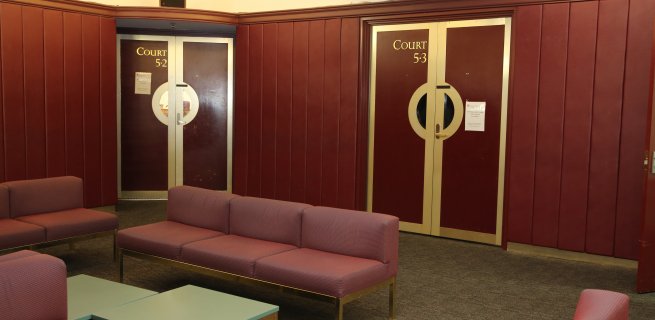By Paul Gregoire and Ugur Nedim
The Local Court Practice Note Crim 1 is a document that sets out how the NSW Local Court organises its proceedings when it comes to trying criminal matters summarily. The practice note was updated on 23 October this year, and this article and those preceding it outline its content.
Our first article on the practice note sets out how the Local Court deals with less serious crimes that are referred to as summary offences, as well as a number of indictable offences and Commonwealth offences that carry less than 10 years prison time that can be nominated to be dealt with summarily.
The next article outlines the lower court procedures relating to parties postponing proceedings, operating audio visual links for those testifying, measures in dealing with defendants with a mental illness, as well as how members of the media can go about recording proceedings.
Our final article in the series looks at the proceedings that specifically apply to domestic violence cases, penalty notice enforcement order annulments and the MERIT program.
Domestic violence proceedings
Section 11 of Crimes (Domestic and Personal Violence) Act 2007 (NSW) outlines that domestic violence offences are particular crimes committed by an individual against another person to whom they’re in a domestic relationship with.
These include personal violence offences, other crimes arising out of the same circumstances as a personal violence offence, or offences that are “intended to coerce or control”.
As the practice note sets out, when an individual has been charged with a domestic violence offence, there are unique measures that apply to these crimes, which ensure that either a plea of guilty is entered promptly or the hearing occurs within three months.
Following a charge of domestic violence, the prosecution must serve the accused with a mini-brief of evidence at the first available opportunity, which should be no later than the first mention in court. The brief must contain alleged facts, a copy of the victim’s statement and any photos relied upon.
The Local Court may require the defendant to enter a plea at first mention. However, if the accused doesn’t enter a plea, or needs time to view the recorded statement, the court will allow an adjournment of no more than 14 days.
In accordance with section 183 of the Criminal Procedure Act 1986 (NSW), unless the defendant goes on to enter a guilty plea, the matter should be adjourned for a hearing date, with the rest of the evidence brief to be served not less than 14 days prior to the fixed hearing date.
If the defendant has legal representation, then within seven days of receiving the evidence brief, their lawyer should advise which witnesses are required for cross-examination, as well as which, if any, of the witness statements can simply be tendered without need for further questioning.
In the case where representations are sought from police, the making of them should not delay the listing of a hearing, or any of the other parts of the standard directions relating to domestic violence matters.
Annulling enforcement notices
Section 50 of the Fines Act 1996 (NSW) outlines the circumstances in which a person can appeal against the refusal of the Fines Administration Commissioner to revoke a penalty notice enforcement order, which is a demand that a fine be paid as its due date has been exceeded.
If the commissioner refuses to revoke a penalty notice enforcement order, and the applicant wants to appeal the matter, they must lodge an application with the Local Court within 28 days of receiving the notice to request the court annul it. The appeal can be lodged at any Local Court registry.
The commissioner can provide a written submission to the court, without need of legal representation. The document must include a copy of the enforcement notice, the name and address of the prosecuting authority and the driver licence number of the subject of the notice.
If annulment is granted and the subject of the notice pleads guilty to the offence, then the court will determine any appropriate sanctions. However, if they plead not guilty following annulment, a hearing date must be set within two months at a court nearby to where the offence took place.
The prosecuting authority may then apply to have the hearing vacated if any witnesses are not available on the set date.
A drug diversion program
The final chapter of the Local Court note outlines procedures around the Magistrates Early Referral Into Treatment (MERIT) program, which is a pre-plea scheme providing defendants with substance use issues with the opportunity to voluntarily participate in rehabilitation as part of the bail process.
Defendants can be identified by the magistrate, a lawyer, police or themselves as being suitable for MERIT program assessment. This is not dependent on the person’s guilt or innocence. And a plea can be entered at any time, from first appearance right up until the end of the program.
To be eligible for MERIT, an accused must be an adult, the offences involved cannot be indictable or sexual in nature, and nor should any such offences be pending before the courts.
The accused must be suspected of using drugs or have a history of drug use. They must be eligible and suitable for bail, as well as willing to voluntarily participate in the program.
On a defendant being considered a prospect, the court may adjourn briefly for the MERIT assessment team to consider their suitability. A caseworker makes this assessment against the program criteria, and if successful, they then formulate a treatment program.
If the defendant is then considered suitable for the program, the magistrate can approve their participation in MERIT. If considered ineligible, then the defendant is to enter a plea and proceedings will run their regular course.
Completing MERIT
An appropriate treatment is determined solely by the caseworker, who considers the defendant’s needs, the risks and their long and short-term goals. A program can include medically supervised home detoxification, opioid substitution therapy, residential rehabilitation or counselling.
MERIT usually lasts 12 weeks, with extensions applying under special circumstances. The court manages the process, and the defendant is required to appear before the magistrate at regular intervals. And at each adjournment, an updated report is provided.
If the defendant fails to follow the requirements of the MERIT program, the magistrate is to be informed and the matter before the court will proceed as normal. Although, minor breaches of the program do not require being actioned.
At the end of the program, the final report will be presented, and the defendant will be asked to enter a plea. Successful completion of MERIT should reflect favourably on a defendant’s sentence, however failing the program should not attract additional penalty.
The final sentence should be communicated to the MERIT team, so they can document the outcome.











